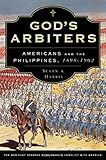Support H-Net | Buy Books Here | Help Support the NBN and NBN en Español on Patreon | Visit New Books Network en Español!
- African Studies
- African American Studies
- American Politics
- American Studies
- American South
- American West
- Asian American Studies
- Australian and New Zealand Studies
- British Studies
- Canadian Studies
- Caribbean Studies
- Central Asian Studies
- Chinese Studies
- East Asian Studies
- Eastern European Studies
- European Politics
- French Studies
- German Studies
- Iberian Studies
- India Studies
- Indian Ocean World
- Iranian Studies
- Irish Studies
- Israel Studies
- Italian Studies
- Japanese Studies
- Korean Studies
- Latino Studies
- Latin American Studies
- Mexican Studies
- Middle Eastern Studies
- Native American Studies
- Pacific Studies
- Polish Studies
- Russian and Eurasian Studies
- Southeast Asian Studies
- South Asian Studies
- Turkish Studies
- Ukrainian Studies
- Western European Studies
- World Affairs
- Animal Studies
- Anthropology
- Archaeology
- Business, Management, and Marketing
- Media
- Critical Theory
- Disability Studies
- Drugs, Addiction and Recovery
- Education
- Economics
- Finance
- Geography
- Gender Studies
- Genocide Studies
- Higher Education
- Human Rights
- Journalism
- Language
- Law
- LGBTQ+ Studies
- National Security
- Philanthropy
- Philosophy
- Policing, Incarceration, and Reform
- Political Science
- Politics & Polemics
- Public Policy
- Sex, Sexuality, and Sex Work
- Sociology
- Sound Studies
- Sports
- Urban Studies
- Big Ideas
- Celebration Studies
- Co-Authored
- Cover Story
- Historical Materialism
- History Ex Silo
- Interpretive Political and Social Science
- Invested Investor
- Landscape Architecture
- Late Antiquity
- Mormonism
- NBN Book of the Day
- NBN Seminar
- Postscript: Conversations on Politics and Political Science
- Practical History
- Preparing for Life After Grad School
- Psychology and Climate Change
- Syriac Studies
- The Chair: In The Room at the Fed
- New Books with Miranda Melcher

Feb 7, 2012
Law, History, Colonialism
The Reach of Empire
Summary
English common law is prevalent across large parts of the world; and all thanks to the British Empire. It was not just culture and commerce that came along to the colonies; English law, as Diane Kirkby and Catharine Coleborne's new book, Law, History, Colonialism: The Reach of Empire (Manchester: Manchester University Press, 2011) demonstrates, made the trip as well, and it was English law that was used to combat many a 'barbarous' (or simply inconvenient) native custom.
Of course it didn't go unaltered; English law interacted with local customs and laws, resulting in 'legal syncretism' as local laws were modified and codified and set down in statutes; they dealt with title to land, sovereignty, citizenship, and also more everyday things like whom one could marry, where one could trade, and how one could go about getting an education.
Many of these statutes and codes remained in operation throughout decolonization and after and yet endure; legal systems are perhaps one of the strongest continuities between the colonial and the post-colonial state. So this is a very welcome work, analyzing as it does the space where law, history (historiography) and colonialism intersected and engaged with each other.



































































































